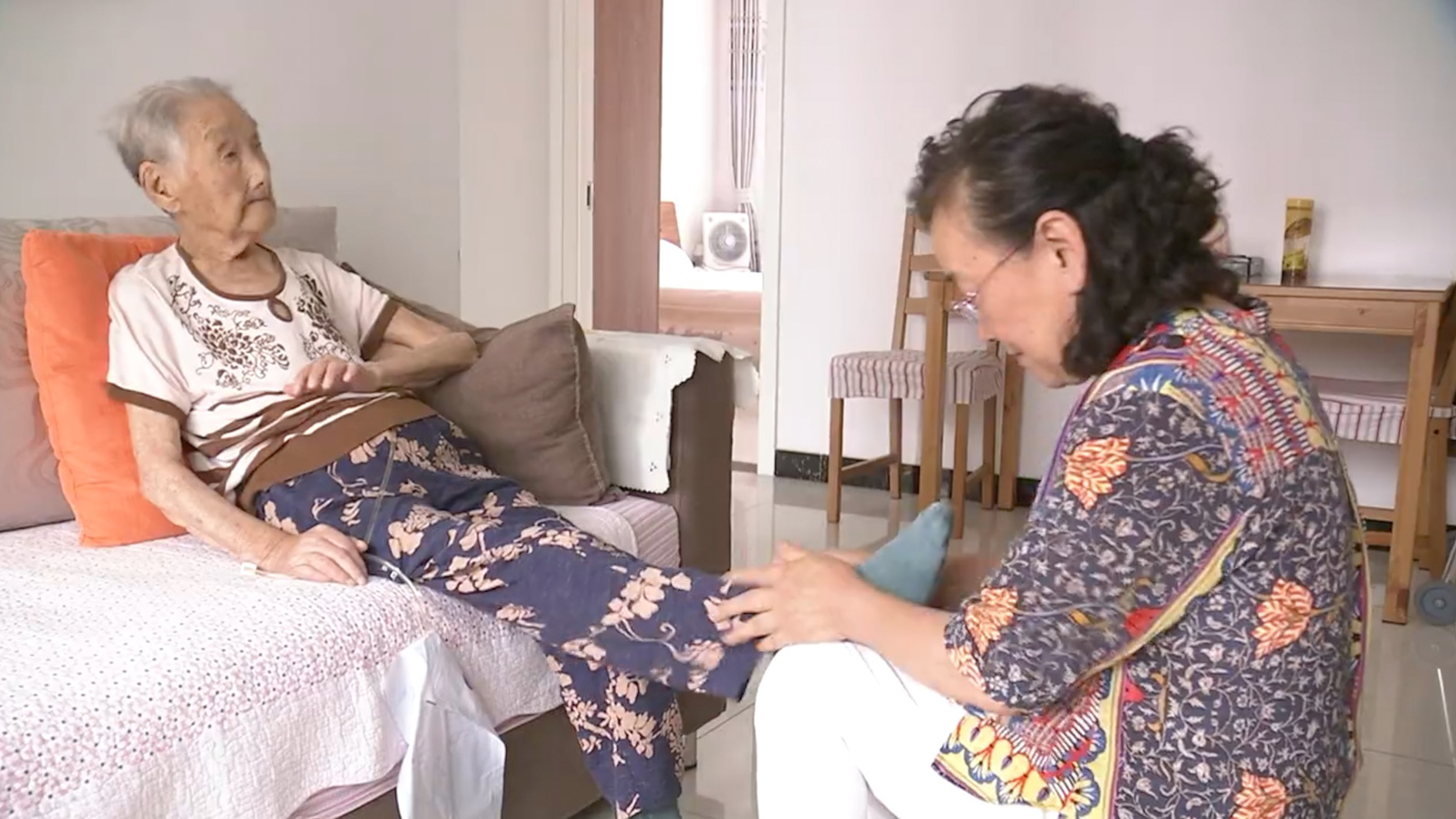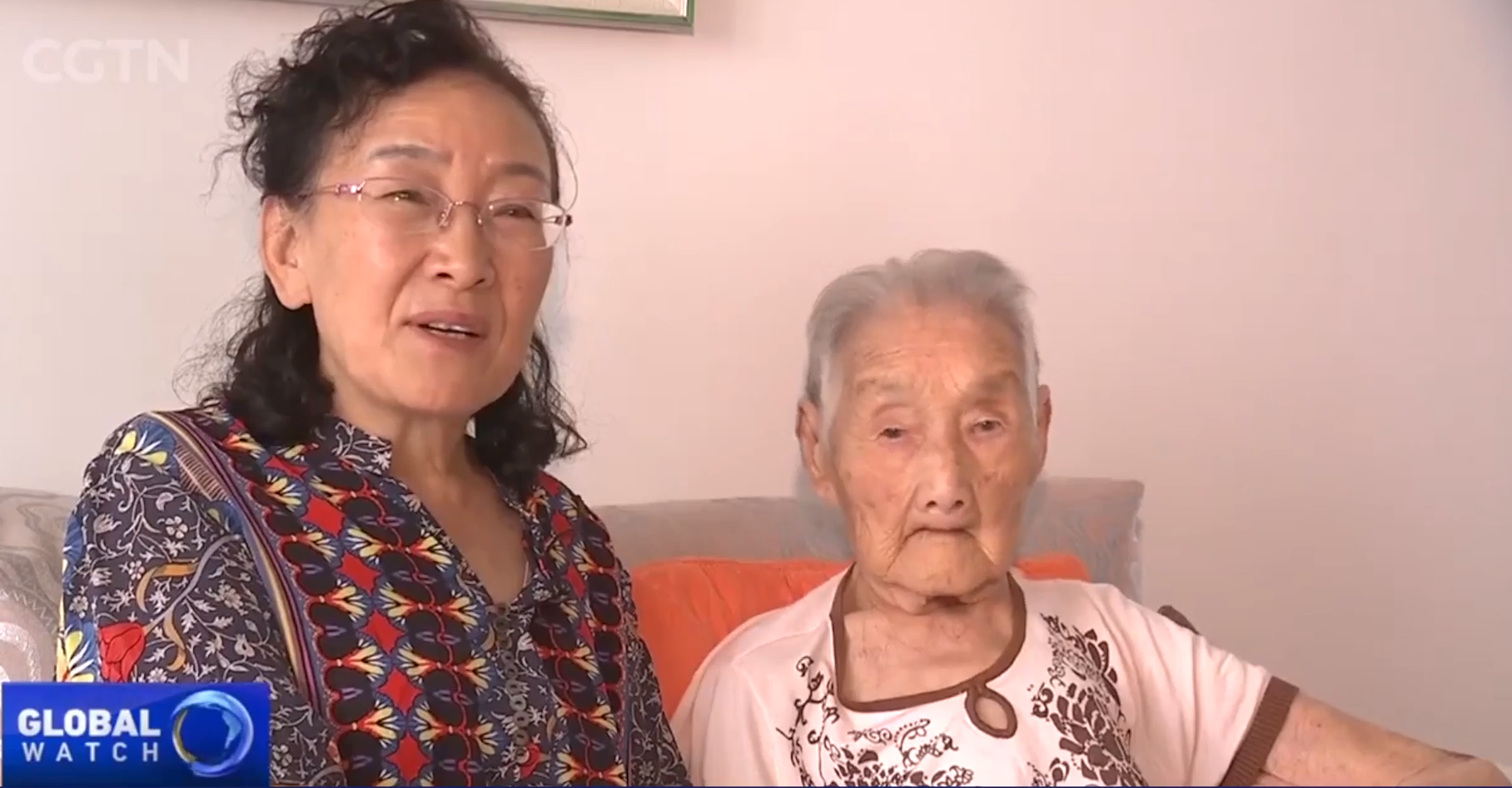

Aged over 60, as the eldest child in the family, Wang Changhe has been taking care of her 93-year-old mother for more than four years, who’s wheelchair-bound due to a cerebral infarction, better known as a stroke.
"It’s very hard, especially since she lost mobility after the stroke. I had to move her around the house without any help. I also had to help her with rehab. It's very challenging and stressful," said Changhe.
She received a lifeline in April from a free government pilot program called Respite Care. A nurse comes to her home one day a week, alleviating Changhe temporarily from her responsibilities.
"It truly helps by giving me a short break every week, so I can deal with other urgent matters, like going to the pharmacy and a supermarket," said Changhe.

Wang Changhe(L) and her mother. /CGTN Photo
Started in Beijing’s Fengtai district last October, the program has provided care services to 614 households. But the free nursing services are only provided four times a month, and strictly confined to families caring for disabled seniors and those with dementia.
According to Cai Jie, a local official working at the Fengtai District Office for the Aged, although the service is free for individuals, the in-home service is a financial burden for the local government with a per day cost standing at 180 yuan, which is one reason that the program is only limited to seniors who cannot attend to themselves.
"Our next step is to support market forces getting into the elderly care industry through subsidies and policies. We’ll also further include respite care in our comprehensive elderly care service system," said Cai Jie.

Beijing municipal government officials visit to a community service center in Fengtai district to inspect home care services for the elderly, June 8, 2018. /VCG Photo
Respite Care programs are not new as many other countries use them to help the disabled and other special groups. China is currently testing the pilot program in Beijing, Guangzhou and other cities amid a rapidly aging society.
According to the National Bureau of Statistics, 17.9 percent of China’s population was aged 60 or older by the end of 2018, increasing by 0.6 percent. The rapidly growing number puts great pressure on younger generations and the social welfare system.
"For our generation, we still have siblings to share the burden (of caring for aged parents), but our offspring is the one-child generation. They’ll be too busy to care for us," said Changhe, when talking about how she prepares for her aging. She added she would go to a nursing home when she gets older.

Copyright © 2018 CGTN. Beijing ICP prepared NO.16065310-3
Copyright © 2018 CGTN. Beijing ICP prepared NO.16065310-3